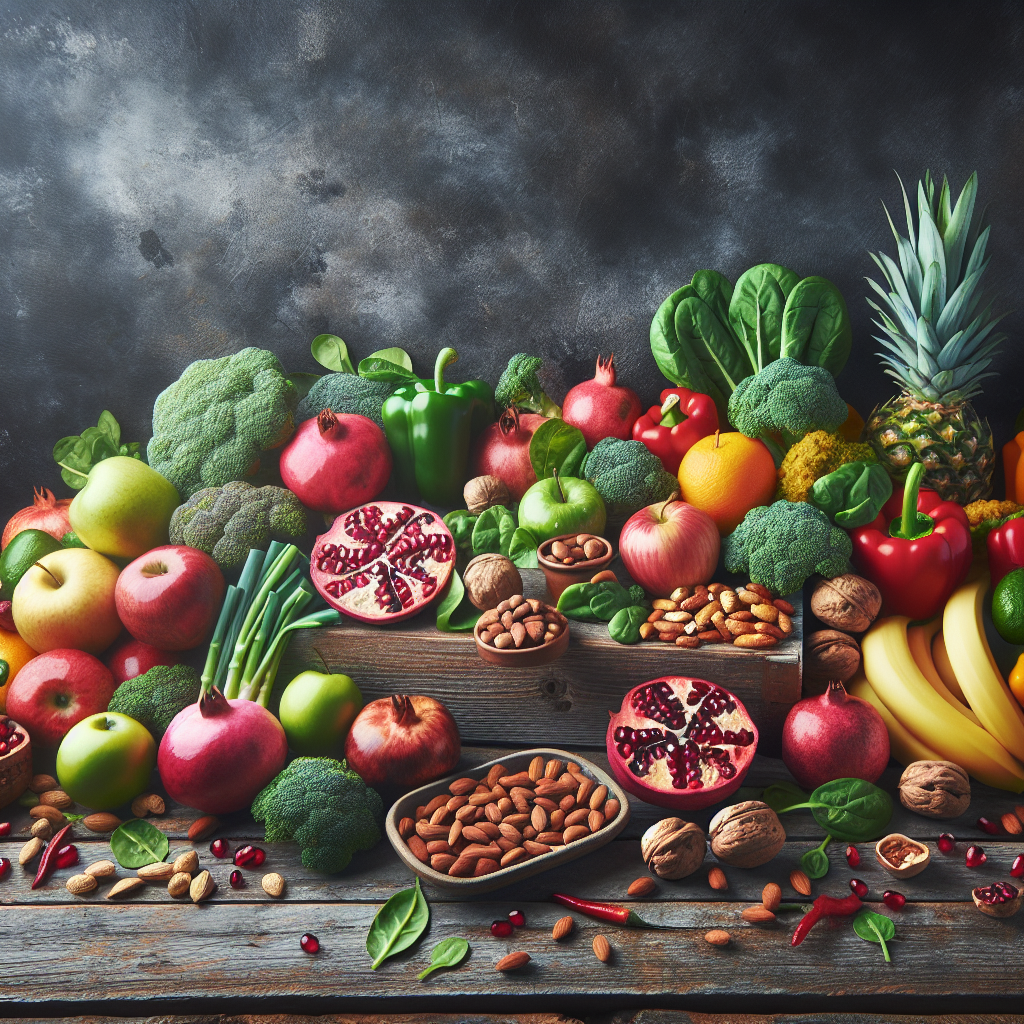The Link Between Organic Food and Longevity
For centuries, humans have sought the secret to a long and healthy life. While genetics and lifestyle factors play a significant role, emerging research suggests that organic food may be a powerful ally in the quest for longevity. Unlike conventionally grown produce, organic food is cultivated without synthetic pesticides, herbicides, or genetically modified organisms (GMOs), which means fewer toxins enter the body. These chemical-free foods are packed with essential nutrients, antioxidants, and healthy fats that contribute to cellular health, reduced inflammation, and a lower risk of chronic diseases—key factors in aging gracefully.
Why Organic Food Matters for Longevity
Organic farming methods prioritize soil health, biodiversity, and sustainability, leading to nutrient-dense crops. Studies have shown that organic fruits, vegetables, and grains often contain higher levels of:
- Antioxidants: Compounds like polyphenols and flavonoids that combat oxidative stress, a major contributor to aging.
- Healthy Fats: Omega-3 fatty acids, found in organic dairy and grass-fed meats, support brain and heart health.
- Vitamins & Minerals: Organic produce tends to have more vitamin C, iron, magnesium, and other micronutrients vital for immune function and metabolism.
By reducing exposure to harmful chemicals and boosting nutrient intake, organic diets help slow cellular aging and promote overall well-being.
The Science Behind Organic Foods and Aging
Research has increasingly linked organic food consumption to longevity. A study published in the British Journal of Nutrition found that organic crops contain up to 69% more antioxidants than conventionally grown counterparts. Antioxidants neutralize free radicals—unstable molecules that damage cells and accelerate aging.
Reducing Toxin Exposure
Conventional farming relies heavily on synthetic pesticides, some of which have been linked to hormonal disruption, neurological disorders, and even cancer. By choosing organic, individuals lower their exposure to these harmful substances, reducing the burden on the liver and kidneys while mitigating long-term health risks.
Gut Health and Immunity
Organic foods support a healthy gut microbiome, which plays a critical role in digestion, immune response, and inflammation regulation. Fermented organic foods like kimchi, sauerkraut, and yogurt contain probiotics that enhance gut flora, improving nutrient absorption and reducing the risk of age-related diseases.
Key Organic Foods for a Longer Life
Not all organic foods are created equal—some stand out for their longevity-boosting properties. Here are the top organic superfoods to incorporate into your diet:
- Berries: Blueberries, strawberries, and raspberries are rich in anthocyanins, which protect against cognitive decline.
- Leafy Greens: Spinach, kale, and Swiss chard provide folate, vitamin K, and chlorophyll for detoxification.
- Nuts and Seeds: Almonds, chia seeds, and walnuts offer healthy fats and vitamin E, crucial for skin and heart health.
- Grass-Fed Meat & Dairy: Higher in omega-3s and conjugated linoleic acid (CLA), which support brain function and reduce inflammation.
- Extra Virgin Olive Oil: A staple of the Mediterranean diet, packed with polyphenols that promote cardiovascular health.
Practical Tips for Adopting an Organic Lifestyle
Transitioning to an organic diet doesn’t have to be overwhelming. Follow these simple steps to make the shift easier:
Start with the Dirty Dozen
The Environmental Working Group (EWG) publishes an annual list of the most pesticide-laden produce, known as the “Dirty Dozen.” Prioritize buying organic versions of these fruits and vegetables, including:
- Strawberries
- Spinach
- Kale
- Apples
- Grapes
Shop Local and Seasonal
Farmers’ markets and community-supported agriculture (CSA) programs often offer fresh, organic produce at lower prices than supermarkets. Seasonal foods are also more nutrient-dense, as they’re harvested at peak ripeness.
Grow Your Own
For those with space, cultivating a small organic garden ensures access to pesticide-free herbs, vegetables, and fruits. Even apartment dwellers can grow basil, tomatoes, or microgreens in containers.
The Long-Term Benefits of Eating Organic
Beyond immediate health improvements, an organic diet contributes to long-term vitality by:
- Slowing Cellular Aging: Antioxidants protect DNA from damage, reducing the risk of age-related illnesses.
- Enhancing Brain Function: Omega-3s and polyphenols support cognitive health, lowering the risk of dementia.
- Boosting Heart Health: Lower pesticide levels and higher nutrient density contribute to better cardiovascular function.
While organic food may require a higher upfront cost, the investment in health pays dividends in longevity and quality of life. By prioritizing organic choices, individuals can take proactive steps toward a longer, healthier future.
